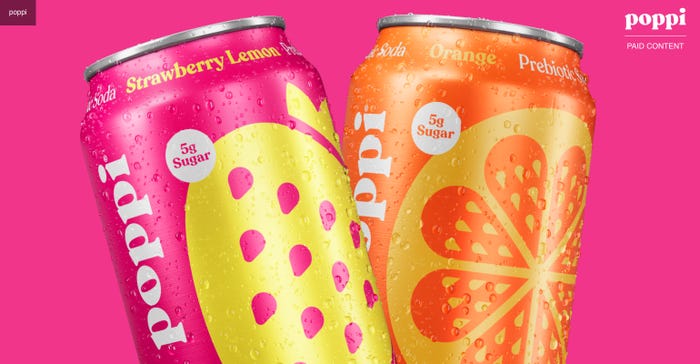FDA to prohibit brominated vegetable oil use after studies show risksFDA to prohibit brominated vegetable oil use after studies show risks
The government’s move prompts New Hope Network’s Market Integrity team to ban the ingredient from trade shows and advertising. Learn more.

At a Glance
- Food and beverage companies have until Aug. 2, 2025, to remove brominated vegetable oil from all products.
- The Food and Drug Administration removed BVO from its "generally regarded as safe" products in 1970, but didn't ban it.
- The United Kingdom banned brominated vegetable oil in 1997, and the European Union prohibited it in 2008.
The U.S. Food and Drug Administration is banning the use of brominated vegetable oil in food and beverages, effective Aug. 2. Compliance is required by Aug. 2, 2025, the agency recently announced.
Brominated vegetable oil (BVO) is a vegetable oil that is modified with bromine. The agency concluded that the intended use of BVO in food is no longer considered safe after the results of studies conducted in collaboration with the National Institutes of Health found the potential for adverse health effects in humans, according to the FDA’s press release.
In October, California Gov. Gavin Newsom signed a bill that prohibits manufacturing, selling, delivering, distributing, holding or offering for sale a product that contains BVO or three other food additives. Although the state’s ban becomes effective Jan. 1, 2027, the FDA’s earlier compliance date will apply to the entire country.
New Hope Network’s standards policy previously suggested that brominated vegetable oil, a synthetic preservative, not be used in foods that are advertised in the company’s magazines or on its website. BVO will now be prohibited, said Shelley Sapsin, vice president of market integrity. It’s not clear when that prohibition will become effective.
The FDA has regulated BVO as a food additive since the agency removed it from the codified list of Generally Recognized As Safe or “GRAS” substances in 1970, the agency said. As authorized, it was used in small amounts to keep the citrus flavoring from floating to the top in some beverages, and manufacturers were required to list BVO, or the specific brominated vegetable oil such as brominated soybean oil, in the ingredients list if it was used.
Relatively few beverages in the U.S. contain BVO. Environmental Working Group’s database lists about 80 products that contain BVO, including some citrus-flavored sodas, fruit punch sodas, ginger beer and orange juice.
Keurig Dr Pepper’s Sun Drop soda still contains brominated vegetable oil, but a company spokesperson told The Washington Post that it is reformulating the brand to eliminate BVO and “remain complaint with all state and federal regulations.”

“The FDA’s decision to ban brominated vegetable oil in food is a victory for public health. But it’s disgraceful that it took decades of regulatory inaction to protect consumers from this dangerous chemical,” said Scott Faber, senior vice president of government affairs at the Environmental Working Group.
“It's outrageous that for years Americans have been consuming a chemical banned in Europe and Japan. The FDA’s belated action on BVO underscores the urgent need for more rigorous and timely oversight of food additives,” he added.
The author of the California bill to ban BVO echoed Faber’s comments. Assemblymember Jesse Gabriel (D-Encino) told EWG, “I am pleased to see the FDA finally taking action on this harmful chemical. This decision aligns with California’s commitment to protecting children and families and sets a national standard that will benefit all Americans.
“While the FDA’s announcement is a step forward, allowing BVO to remain in foods for so long despite clear evidence of harm highlights a glaring failure in our food safety system. The FDA must act quickly to expedite its reviews and do more to remove harmful and toxic chemicals from our food supply,” Gabriel continued.
According to Center for Science in the Public Interest, BVO was banned in the United Kingdom in 1997. India prohibited it in 1990, while the European Union banned it in 2008 and Japan followed in 2010.
The FDA regulates ingredients added to food and is charged with reassessing previously evaluated ingredients and addressing safety concerns. Reassessing the safety of food ingredients as new, relevant data become available is a priority for the FDA and a key part of the agency’s food safety mission, the agency’s press release said.
The compliance date is one year after the effective date to give companies the opportunity to reformulate, relabel and deplete the inventory of BVO-containing products before the FDA begins enforcing the final rule, the agency reported.
About the Author
You May Also Like





